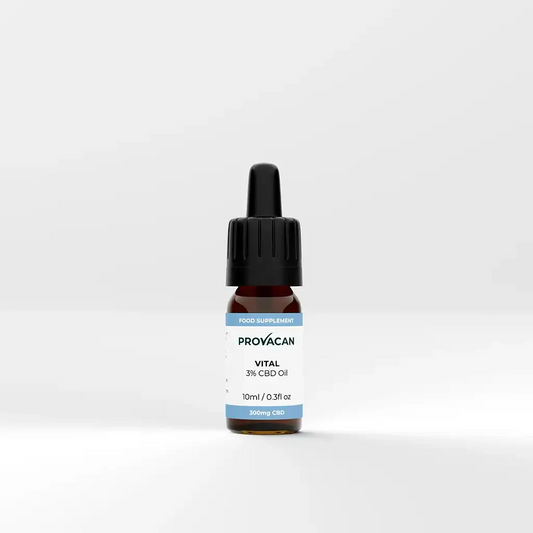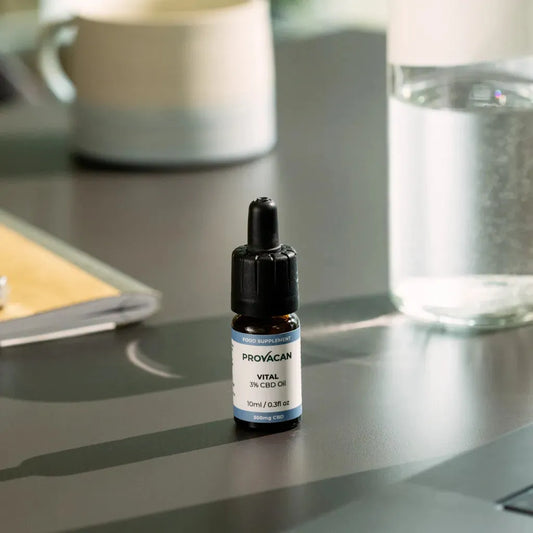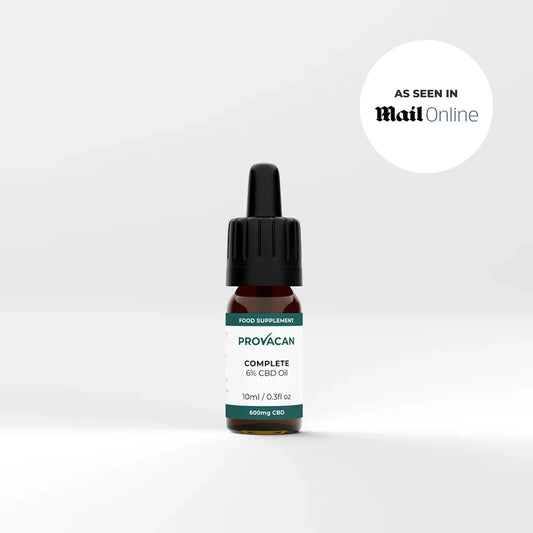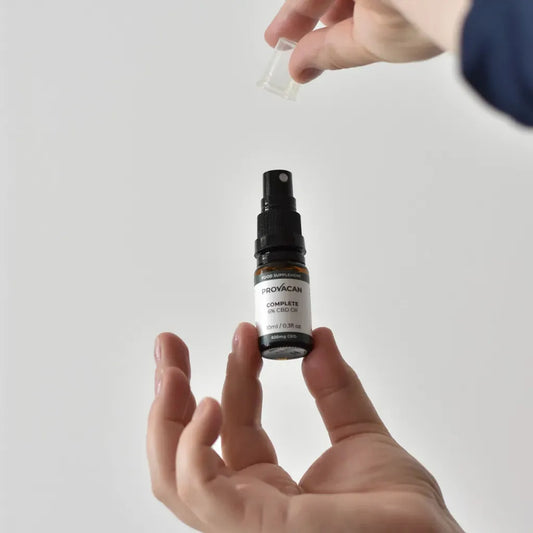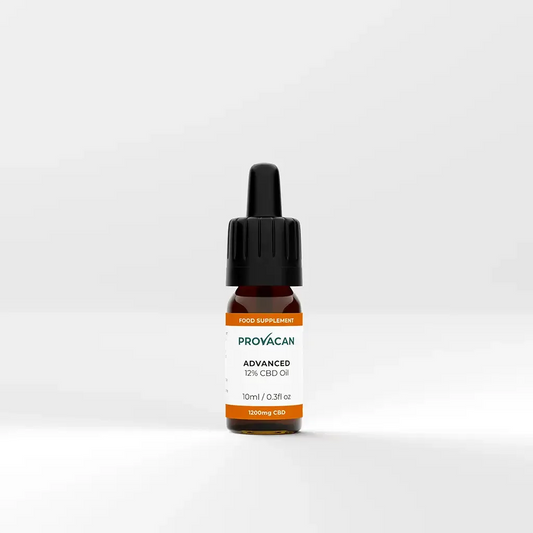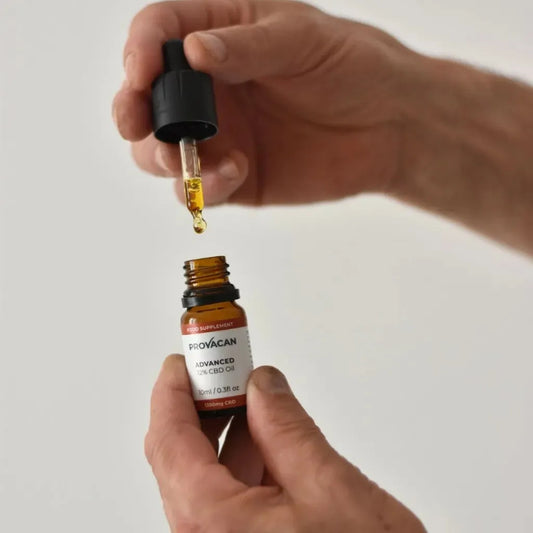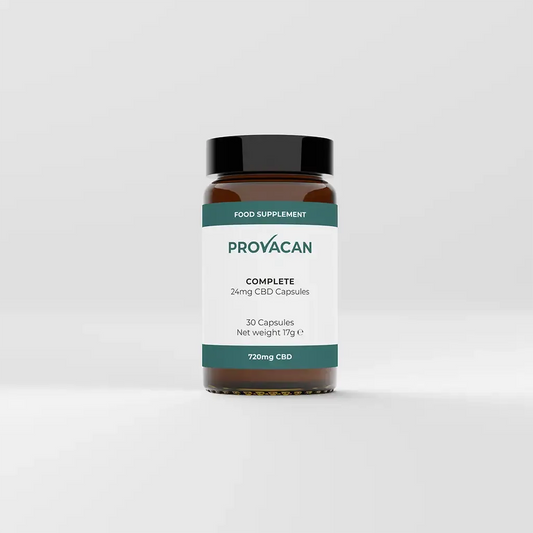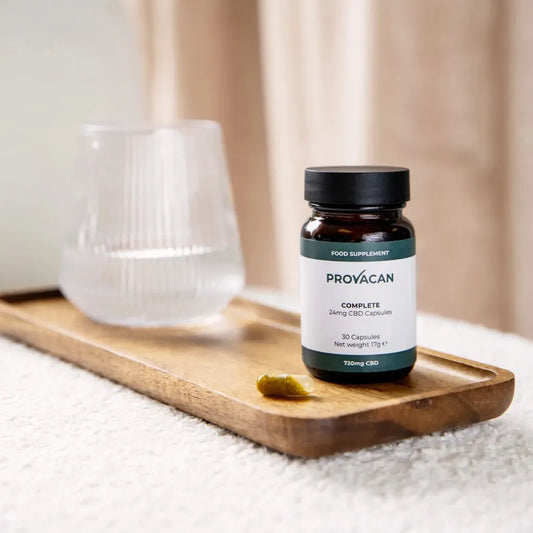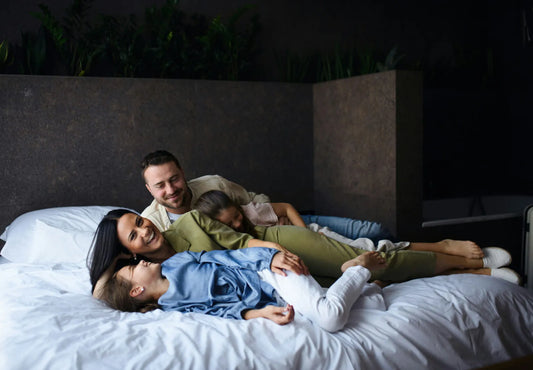Key takeaways:
- Natural sleep aid: CBD can enhance sleep by reducing anxiety, alleviating pain, and regulating circadian rhythms, making it an effective natural remedy for sleep disturbances.
- CBD product selection: Choosing the right CBD product involves considering different forms like oils, gummies, capsules, topical creams, and isolates, each with unique benefits for improving sleep quality.
- Provacan quality: Provacan offers high-quality, scientifically backed CBD products, emphasising purity, potency, and efficacy to support optimal sleep and overall wellbeing.
Rest is critical.
Getting enough sleep is the only path to health and wellbeing, yet many struggle to achieve it. With growing interest in natural solutions, CBD (cannabidiol) has emerged as a popular choice for those seeking a calmer mind and better sleep. As a non-intoxicating compound, CBD may support relaxation and help regulate sleep patterns.
In this guide, we’ll explore CBD products, such as oils, capsules, and gummies, and discuss how each can fit into a bedtime routine. We’ll also cover important factors, including CBD strength, extraction methods, and additional ingredients that may enhance relaxation.
CBD and its effects on sleep
One of the most frequently asked questions regarding CBD is: does CBD help you sleep? CBD may positively affect sleep patterns, addressing both the quality and duration of sleep.
CBD (cannabidiol) is a natural compound found in the Cannabis Sativa plant. Unlike its counterpart THC (tetrahydrocannabinol), CBD is non-psychoactive, meaning it won’t get you “high.” Instead, CBD interacts with the body’s endocannabinoid system (ECS), a complex network of receptors and neurotransmitters that plays a key role in maintaining balance in various bodily functions, including sleep.
Several mechanisms explain how CBD may enhance sleep:
- Anxiety reduction: CBD has been shown to reduce anxiety, a common culprit behind sleep difficulties. By calming the mind, CBD can make it easier to fall asleep and stay asleep.
- Pain alleviation: For those suffering from chronic pain or conditions such as arthritis, the discomfort can significantly disrupt sleep. CBD’s analgesic properties can reduce pain, thereby improving sleep quality.
- Circadian rhythm regulation: CBD may help regulate the body’s circadian rhythms, helping correct sleep patterns and ensure restful, restorative sleep.
Decide on the right CBD product type
CBD is available in several forms, each with its own set of sleep benefits. Here are some of the most common types of CBD products and how they may fit into a bedtime routine:
CBD oils and tinctures
With quick absorption and easy dosage control, CBD oil is one of the most versatile ways to take CBD. Placed under the tongue, CBD oil bypasses the digestive system and is absorbed directly into the bloodstream. Provacan offers high-strength CBD oils that are ideal for those looking for a potent and straightforward sleep aid.
Pros:
- Fast-acting, especially when taken sublingually
- Allows for easy dosage adjustment
- High-strength options available for powerful effects
Cons:
- Some may find the taste slightly earthy
CBD capsules
A more convenient option is CBD capsules since they contain a pre-measured dose of CBD. They’re easy to add to a nightly routine and don’t have the taste associated with oils. Capsules take longer to take effect because they must pass through the digestive system, but this slower release may suit those looking for a gradual calming effect to help them drift off to sleep.
Pros:
- Consistent dosage
- Convenient and tasteless
- Longer-lasting effects
Cons:
- Slower absorption compared to oils
CBD gummies
CBD gummies are tasty and enjoyable, and they can be delivered quickly and consistently. They’re often lower in CBD concentration than oils or capsules but may still be helpful for milder sleep concerns. For those who enjoy the taste and simplicity of a gummy, Provacan’s CBD gummies are an option worth considering.
Pros:
- Tasty and easy to consume
- Portable and discreet
- Ideal for beginners
Cons:
- Typically lower CBD concentration
- Slower absorption due to digestion
CBD topicals
While topical CBD products are not as commonly used for sleep, some people find that applying CBD balm or lotion to pulse points, such as the wrists or temples, can create a relaxing bedtime ritual. While Provacan's primary sleep products include oils and capsules, a topical could be a good addition to an overall relaxation routine.
Pros:
- Easy to target specific areas
- It may enhance a relaxing bedtime ritual
Cons:
- Limited evidence for sleep support when used alone
Consider the CBD strength
The strength or concentration of CBD is an important factor when choosing a CBD product for sleep. Higher concentrations of CBD may provide stronger, more noticeable effects, which could be beneficial for individuals with sleep concerns linked to anxiety or stress.
Low-strength (5 to 10 mg per serving)
Low-strength CBD may suit those who are new to CBD or have mild sleep difficulties. With this strength, you can feel how your body reacts to CBD before moving up to a higher dose.
Medium-strength (15 to 30 mg per serving)
Medium-strength CBD is a popular option for moderate sleep support, offering a balanced effect that is stronger than low-strength products without being overpowering.
High-strength (40+ mg per serving)
For those who struggle significantly with sleep, high-strength CBD can provide the powerful calming effects needed to settle into a restful state. Provacan offers several high-strength CBD options, including a 1200mg CBD oil that provides a robust dosage for experienced users.
Extraction method and product quality
When selecting a CBD product for sleep, it's essential to consider the brand's extraction method and quality standards. CO2 extraction is considered one of the best methods because it retains a pure, potent CBD extract without harmful chemicals. Provacan uses CO2 extraction to ensure its products are free from contaminants and maintain their therapeutic properties.
Provacan also provides certificates of analysis (COAs) for its products, which show that each batch has been independently tested. This transparency allows you to verify that you’re purchasing a product that meets quality and safety standards, giving you peace of mind as you integrate it into your sleep routine.
Difference between CBD spectrums
CBD products come in three main types, and each has unique attributes:
- Isolate: Contains only CBD with no other cannabinoids. Isolate products are an option for those who want CBD’s effects without any trace of THC.
- Broad-spectrum: Contains CBD and other beneficial cannabinoids but is THC-free. Broad-spectrum products may produce a more pronounced effect through the "entourage effect," where multiple cannabinoids work together.
- Full-spectrum: Contains CBD, THC (within the legal limit of 0.2%), and a full range of cannabinoids. Full-spectrum CBD is often considered the most effective due to the entourage effect.
Additional ingredients to promote relaxation
Some CBD products include ingredients that enhance relaxation and sleep. Common additions include:
- Melatonin: A natural hormone that regulates sleep cycles, often combined with CBD to support a natural sleep-wake rhythm.
- Chamomile and valerian root: Herbs traditionally used to promote relaxation.
- Lavender and magnesium: Known for their calming properties, they are often added to CBD topicals.
Final thoughts
CBD offers a promising option for those seeking a natural way to improve sleep. With a range of choices available, finding a CBD product that aligns with your preferences and needs, whether you prefer fast-acting oils, easy-to-dose capsules, or delicious gummies, is possible. Provacan’s commitment to high-quality, transparent, and effective CBD products makes it a trusted choice for sleep support.
Read also:
- CBD vs THC for anxiety
- Using CBD for sleep: is it safe and effective?
- Sweet relief: the top benefits of CBD gummies
Sources
- Babson, K. A., Sottile, J., & Morabito, D. (2017). Cannabis, Cannabinoids, and Sleep: A Review of the Literature. Current Psychiatry Reports, 19(4), 23. https://doi.org/10.1007/s11920-017-0775-9
- Shannon, S., Lewis, N., Lee, H., & Hughes, S. (2019). Cannabidiol in Anxiety and Sleep: A Large Case Series. The Permanente Journal, 23, 18-041. https://doi.org/10.7812/TPP/18-041
- Zhornitsky, S., & Potvin, S. (2012). Cannabidiol in Humans—The Quest for Therapeutic Targets. Pharmaceuticals, 5(5), 529-552. https://doi.org/10.3390/ph5050529





